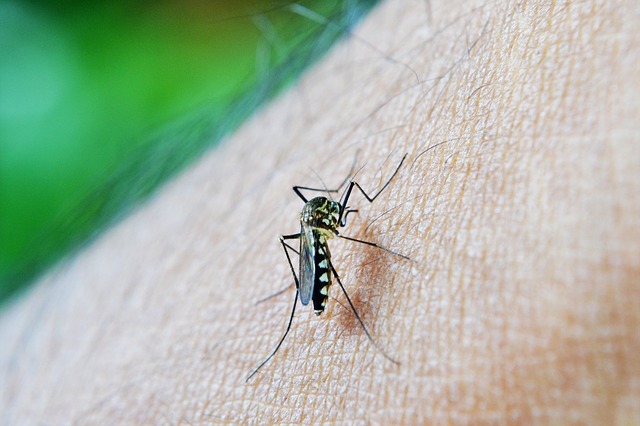Which Reading research got the most attention across the globe in 2021? We’ve dug into the Altmetric data to bring you the past year’s three most talked about Reading-authored publications for each research theme.
Agriculture, Food and Health theme:
Revealing the bugs lurking in university campus sinks*

Hand-washing shapes the communities of bacteria that live and grow in our plumbing, according to a Reading study of communal sinks across the University of Reading campus.
The study team took and analysed samples from 123 sinks around non-clinical settings at the University of Reading – such as toilets and bathrooms in teaching, research and social spaces – in the largest study of sink bacteria ever done outside a hospital.
The research, published in Environmental DNA, showed that the type of plumbing system significantly affected which bacterial family was more abundant. Below-sink strainers were found to be dominated by the Moraxellaceae family of bacteria, while sinks with a P-trap style of drainage, had higher amounts of Burkholderiaceae. Both species are mostly harmless to human health, and come from the skin of our hands rather than our guts, highlighting that hand-washing significantly shapes the communities of bugs that lurk beneath the plug hole.
The lead author of the study, PhD student Zoe Withey, explained: “We need to be very aware that what we are putting down our sinks is affecting the bacterial community underneath. These areas may not be reached during routine cleaning, and this could lead to communities containing hardier, resistant microbes.”
The study was co-authored by Dr Hyun Soon Gweon, Lecturer in Bioinformatics for Genomics.
Read our news story on the paper

Milk drinkers are heavier but have a lower heart attack risk
 People who regularly drink large volumes of milk have lower levels of cholesterol (both ‘good’ and ‘bad’) and a 14% lower risk of coronary heart disease – but they tend to be heavier than non-milk drinkers, according to our second most popular publication from the Agriculture, Food and Health theme.
People who regularly drink large volumes of milk have lower levels of cholesterol (both ‘good’ and ‘bad’) and a 14% lower risk of coronary heart disease – but they tend to be heavier than non-milk drinkers, according to our second most popular publication from the Agriculture, Food and Health theme.
The research, led by Reading’s Vimal Karani, Professor of Nutrigenetics and Nutrigenomics, looked at three large population studies (up to 1.9 million people in total) to pick out those people with a variation in the gene coding for lactase, the enzyme in our guts that digests milk sugars. This enabled them to account for inconsistencies in sampling size, ethnicity and other factors that might skew the overall picture of the effect of milk on cardiovascular diseases.
The research suggests that reducing the intake of milk might not be necessary for preventing cardiovascular diseases. It remains unclear what contributes to the lower cholesterol levels seen in milk drinkers – whether it is the fat content in dairy products or some other an unknown ‘milk factor’, Professor Karani explains.
Read our news story on the research

Stories of solitude: what time alone offers
 Most of us have spent time separated from colleagues and loved ones since the global pandemic struck, but research by Netta Weinstein and Heather Hansen from Psychology has shown that there was a sunnier side to solitude – peace, freedom from life’s usual daily pressures, a sense of self-reliance and the opportunities for ‘self-growth’, such as learning a new skill.
Most of us have spent time separated from colleagues and loved ones since the global pandemic struck, but research by Netta Weinstein and Heather Hansen from Psychology has shown that there was a sunnier side to solitude – peace, freedom from life’s usual daily pressures, a sense of self-reliance and the opportunities for ‘self-growth’, such as learning a new skill.
The research, published in Frontiers in Psychology, involved over 2,000 teenagers, adults and older adults in the summer of 2020, which coincided with the end of the UK’s national lockdown. They were asked to describe their experiences of solitude during the pandemic. Findings showed that time spent alone led to positive effects on well-being across all ages.
Teenagers had little interest in the sense of autonomy that time spent alone can give us, but they were interested in the opportunity for self-growth, while adults (aged 25 – 51) enjoyed learning new skills and feeling more effective and competent. In contrast, older adults (aged 59 to 85) were much less interested in self-growth but enjoyed the having the space to feel self-reliant and connect with themselves, free from the pressure of others.
Read our news story on the research

Environment theme:
First picture of a ‘space hurricane’ above Earth

The first ever 3D image of a ‘space hurricane’ – a 1,000km-wide swirling mass of plasma hovering hundreds of kilometres above the North Pole, and raining electrons instead of water – was published in March 2021 by University of Reading and Shangdong University scientists. The image was created based on satellite observations from summer 2014 which were only discovered during later analyses. The work proves the existence of such phenomena and sheds new light on the relationship between planets and space.
Reading space scientist and one of the paper’s authors, Professor Mike Lockwood, said: “Plasma and magnetic fields in the atmosphere of planets exist throughout the universe, so the findings suggest space hurricanes should be a widespread phenomena.”
The team of scientists from China, the USA, Norway and the UK used observations made by four Defense Meteorological Satellite Program satellites and 3D magnetosphere modelling to produce the image. The analysis involved checking data from the satellites, radars and other sources for consistency, and to build up a full picture of what had happened and ensure that the mechanisms involved were understood. Their findings, our most popular Environment theme paper of the year, were published in Nature Communications.
Read our press release on the research

Lancet Countdown: ‘Code red’ for a healthy future

Once again appearing in our top publications list was the annual report of The Lancet Countdown: Tracking Progress on Health and Climate Change.
This year entitled ‘Code red for a healthy future’, the report shows that the human health impacts of climate change are getting worse, exposing people in all corners of the world to greater risks. For example, 72% of countries saw an increase in people exposed to wildfires; environmental conditions for transmission of diseases like dengue, malaria and cholera is increasing around the world; and in 2020, up to 19% of the global land surface was affected by extreme drought in any given month – putting people in danger of food and water insecurity.
Key trends seen in previous Lancet Countdown Reports are not improving, the report warns, widening gaps in social and health status between rich and poor. But a better future is still possible, it concludes: ‘The COVID-19 pandemic has shown how countries must cooperate in the face of global crises and the recovery gives us an unprecedented opportunity to invest in solutions – but that will only be possible if the world acts together to leave no person behind.’
The research involved Reading’s Professor Nigel Arnell and Dr Claudia Di Napoli alongside leading doctors, academics and policy professionals from over 35 organisations worldwide.

Risk of stagnant lakes from rising temperatures
 Only a tiny fraction of the Earth’s surface is occupied by rivers and lakes, yet they are home to 10% of all the world’s species. Oxygen dissolved in waters where plants and animals live helps to boost the variety of species living there and provides them with the right balance of nutrients. What is more, freshwater oxygen levels regulate greenhouse gas emissions and affect the quality of drinking water.
Only a tiny fraction of the Earth’s surface is occupied by rivers and lakes, yet they are home to 10% of all the world’s species. Oxygen dissolved in waters where plants and animals live helps to boost the variety of species living there and provides them with the right balance of nutrients. What is more, freshwater oxygen levels regulate greenhouse gas emissions and affect the quality of drinking water.
Scientists have seen a long-term decline in dissolved oxygen levels in coastal and ocean waters thanks to climate change and human activities – but until recently, little was known about what was happening in lakes.
In a study published in Nature in June 2021, our third most popular Environment theme paper of the year, researchers studied data from 393 lakes worldwide from between 1941 and 2017. They found their temperatures rose by 0.39°C every decade, while dissolved oxygen fell by 5% at the surface and 19% in the depths, where important fish like trout and salmon thrive. One reason for this is because warmer conditions encourage the growth of algal blooms, which block sunlight from reaching the depths, reducing the plant photosynthesis that provides the water with vital oxygen.
Largely due to warming air temperatures, 68% of the lakes in the study had lost this important deep-water niche to rising temperatures and falling oxygen levels, threatening the so-called ‘ecosystem services’ provided by lakes upon which we all depend.
Dr Iestyn Woolway, University of Reading Research Fellow in Climate Science, was one of the study’s authors.

Prosperity and resilience theme
Healthy lifestyles make us happier
 Eating our five a day and exercising regularly not only makes us healthier, but also happier, according to a study co-authored by Reading economists Dr Sarah Jewell and Professor Uma Kambhampati, published in the Journal of Happiness.
Eating our five a day and exercising regularly not only makes us healthier, but also happier, according to a study co-authored by Reading economists Dr Sarah Jewell and Professor Uma Kambhampati, published in the Journal of Happiness.
The researchers analysed data from a long-term study that captures information about the income, attitudes, lifestyle and health of 40,000 UK households over many years. The study found that eating fruit and vegetables and doing sports increased people’s life satisfaction and not the other way around.
Findings showed that people’s ability to delay gratification and apply self-control plays a big role in influencing lifestyle decisions, which in turn has a positive impact on wellbeing. The results held true regardless of household income, region, gender, education and age groups, although women were found to be more likely to eat more fruit and vegetables, while men appeared to exercise more.
The first author on the study was the University of Kent’s Dr Adelina Gschwandtner.

Legal protection for refugees
 A chapter written by Professor Ruvi Zeigler (Law) in the prestigious Oxford Handbook of International Refugee Law was our second most attention-grabbing publication of 2021 for the Prosperity and Resilience theme.
A chapter written by Professor Ruvi Zeigler (Law) in the prestigious Oxford Handbook of International Refugee Law was our second most attention-grabbing publication of 2021 for the Prosperity and Resilience theme.
Professor Zeigler’s ‘International humanitarian law and refugee protection’ chapter considers how international refugee and humanitarian laws relate to one another, and seeks to show that when people are displaced from their home countries and in need of protection there are difficult and inevitable interactions between the two. It looks at the scope and thresholds for application of international humanitarian law in the refugee context, and protection gaps that arise from the way in which conflicts and people are classified under international humanitarian and refugee laws.
The Oxford Handbook on Refugee Law provides up to date and comprehensive analysis of the field with a wide global scope, examines a wide range of legal instruments relevant to refugee protection and critiques the status quo and sets the agenda for future academic research.
Colin Yeo, an Immigration and asylum barrister and founder of the Free Movement immigration law website describes the handbook as: “as a state of the art review of international refugee law and scholarship by some of the most prominent and well respected writers and thinkers in the field.”

Referee decisions swayed by football crowds, lockdown study suggests
 Without crowds watching professional football matches during the global pandemic, referees gave out fewer yellow cards to the away teams, reducing home teams’ advantages, according to research carried out by Reading Economists Professors James Reade and Carl Singleton.
Without crowds watching professional football matches during the global pandemic, referees gave out fewer yellow cards to the away teams, reducing home teams’ advantages, according to research carried out by Reading Economists Professors James Reade and Carl Singleton.
The study looked at 1,498 professional football matches played without fans across 17 countries and 23 leagues during the 2019/20 league seasons. The researchers discovered a large and statistically significant effects on the number of yellow cards issued by referees. Without a crowd, fewer cards were awarded to the away teams, reducing the home advantage. The absence of a home crowd had no effect on the final match scoreline, but the study’s findings, published in Economics Letters have implications for how social pressure and crowds can change the neutrality of decisions.
The findings are important for economics, not just for sports fans, claim Reade and Singleton, because there is little experimental evidence on how crowds can influence outcomes in a way that unfairly benefits some competitors. The research suggests that the finals of key competitions, whether sports matches or political debates – should be held at neutral locations with equal allocations of seats for supporters of both sides.

Heritage and creativity theme:
Climate change may have caused Amazon indigenous population crash before Europeans arrived

Climate change impacts felt in the Amazon rainforest before the arrival of European settlers in 1492 may have meant populations of indigenous people were already in decline before the ‘Great Dying’, according to research involving Reading scientists.
Scientists studying fossil pollen and charcoal data from across the Amazon said that it appears to show that human management of the rainforest may have peaked around 1200 AD, before some sites were abandoned, allowing trees to grow back in these areas.
The research, co-authored by Reading tropical palaeoecology researcher Frank Mayle and published in the journal Science, challenges our assumptions that the largest population crash in the Americas – known as the Great Dying – began when European settlers carried new diseases to the continent.
Professor Mayle says: “Our analysis raises the possibility that climate change caused the decline of some Amazonian societies several centuries before the Europeans arrived, especially the more complex societies which may have been too rigid to adapt.
“Although the introduction of European diseases, such as small pox, is still likely to have been the reason for the major population decline subsequently seen in the Americas, the research is a warning of the threat climate change poses to society.”
The research was led by Professor Mark Bush at Florida Tech, and included a team of international collaborators.

Surgery and selfhood in Early Modern England
 From amputations to facial surgery, a book exploring what happened to people experiencing life-changing surgeries in the late 16th to mid-18th centuries got the second most global attention this year within the Heritage and Creativity theme.
From amputations to facial surgery, a book exploring what happened to people experiencing life-changing surgeries in the late 16th to mid-18th centuries got the second most global attention this year within the Heritage and Creativity theme.
Dr Alanna Skuse’s monograph ‘Surgery and Selfhood in Early Modern England: Altered Bodies and Contexts of Identity’ draws on historical medical and literary texts from treatises to travel writing and gives fresh insights and interpretations of historical material. It includes the first look at so-called ‘phantom limb syndrome’ in this historic period (1550 – 1750) and the first analysis of early mastectomy survivors. Her book explores the profound effects on the lives and philosophies of people who had such life-changing surgeries, including questions about how a person’s body integrity was thought to relate to their identity, soul and morality.
The book was the result of Dr Skuse’s Wellcome Trust-funded postdoctoral fellowship between 2016-2019.
Read our blog post about the book

Muslim food culture secretly persisted in 16th century Catholic Spain

Archaeological evidence of Muslim food practices continuing in secret for decades after the Spanish Catholic conquest of Granada in 1492, has been uncovered by a team including Reading’s Professor Aleks Pluskowski.
In the conquest’s aftermath, native Andalusians, who were Muslims, were permitted to continue practising their religion, but this was then outlawed a decade later. Recent archaeological excavations of items discarded in a 16th century well in Cartuja in Granada, however, have uncovered evidence that the ‘Moriscos’ or ‘little moors’ continued the Andalusian practice of eating from communal bowls called ataifores, in secret for decades after the conquest.
Besides discovery of the communal eating bowls, bones from professionally butchered, meat-rich cuts of mutton (as opposed to home reared animals) and the absence of any pig bones excavated from the site point to it being a Morisco household.
This is the first such archaeological example from a Morisco household, and demonstrates how some Andalusi families clung to their traditional dining culture as their world was transformed.
Read our blog post on the research

The Altmetric Attention Score (shown in the badges above) is a weighted count of all of the online attention Altmetric have found for an individual research output. This includes mentions in public policy documents and references in Wikipedia, the mainstream news, social networks, blogs and more. For this blog we’ve featured the top three highest-scoring publications with a Reading-affiliated author within each of our four research themes, all of which were published between January and December 2021.
*This year’s most popular publication by a Reading author in the Agriculture, Food and Health theme, with an Altmetric score of 3732, was the 2020 report of the Lancet Countdown on health and climate change. As we featured this in the number one spot last year and the 2021 version of the report also appears here, we omitted this from the blog post.

